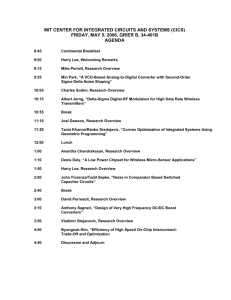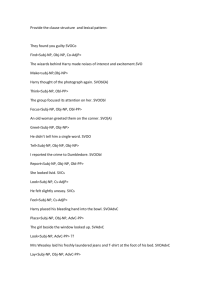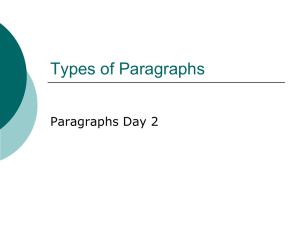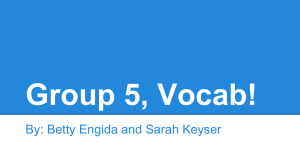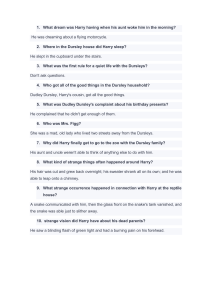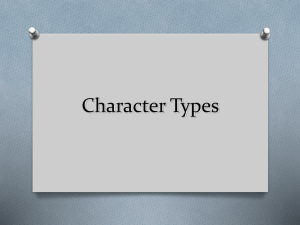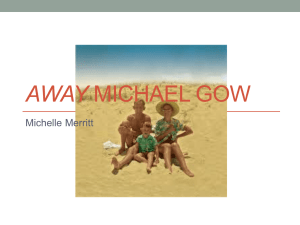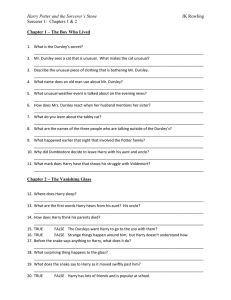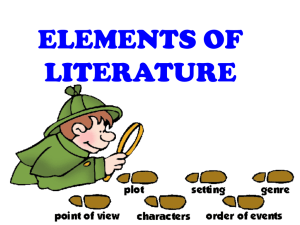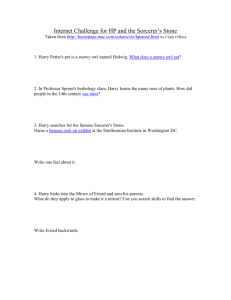Writing the Exposition for a Personal Narrative
advertisement
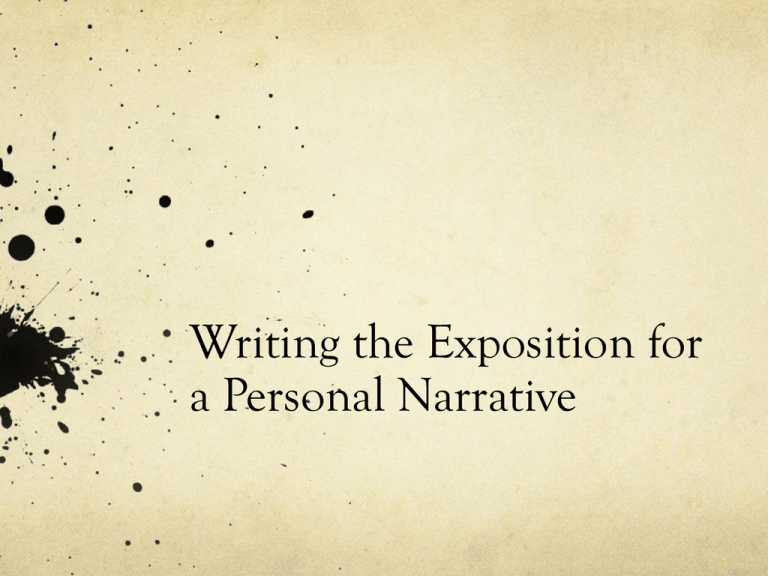
Writing the Exposition for a Personal Narrative Objective Students will use lead techniques to write a rough draft of the exposition to their personal narrative. Your Goals To grab the reader’s attention using a lead To provide context by introducing main characters, setting up the conflict, and establishing the setting Goal #1: Grab the reader’s attention In order to meet this goal, you will need to use a lead. On the following slides are examples of lead techniques. Goal #2: Provide Contextualization In order to meet this goal you must: Introduce main characters Set up the conflict Establish the setting The setting may be specific (Lincoln) or more general (front yard) Lead Technique: Describe the Setting Describe the setting of the story – when and where the story occurs. Use the description to set the mood of the story Example: (lead) For seven years there had been too little rain. The prairies were dust. Day after day, summer after summer, the scorching winds blew the dust, and the sun was brassy in the yellow sky. Crop after crop failed. (*context) I could tell Ma and Pa were worried. Like our neighbors, the drought had caused our food supplies to become dangerously low. • Rose Wilder Lane Lead Technique: Introduce Someone in the Story Introduce someone in the story – Tell about a person to build interest, characterization, and plot. Example: (lead) If the motorcycle was huge, it was nothing to the man sitting astride it. He was almost twice as tall as a normal man and five times as wide…He had hands the size of trashcan lids, and his feet in their leather boots were like baby dolphins. (*context) Hagrid had arrived to take Harry Potter to Hogwart’s School of Witchcraft and Wizardry. This announcement was incredibly exciting to Harry. Harry was currently living with the Dursley’s, his aunt and uncle. They had been forced to take in Harry after the death of his parents and made it apparent to Harry that they found this obligation a nuisance. -J.K. Rowling Lead Technique: Set-Up Lead Set-Up Lead – Set up the action for the whole story in a few sentences. Example: (lead and context together) In October, 1896, I entered the Cambridge School for Young Ladies to be prepared for Radcliffe. The freedom was exhilarating, but I was also nervous about being on my own for the first time. As I pushed open the heavy wooden doors, I sensed my life was about to change forever. - Helen Keller Lead Technique: Ask a Question Ask a Question: Use a question to provoke thought and response. Example: (lead) Have you ever done something stupid because of a dare? Take it from me, not only is it a bad idea, but it can have long lasting negative consequences. (context) It was a warm Saturday morning when my friends and I decided to go swimming. Shortly after we arrived my best friend, Sarah, started doing dives off the high board. “Come on, Jenny,” she said to me, “go off the high board with me. You can do it.” I hesitated, looking up at the turquoise rectangle which suspended mid-air in the sky. “I dare you,” she taunted. Rough Drafting Your Personal Narrative Exposition Use your organizer to write TWO versions of your exposition using two of the given strategies. For example, you might write one version using strategy A (describing the setting) and one version using strategy C (set-up leads).
